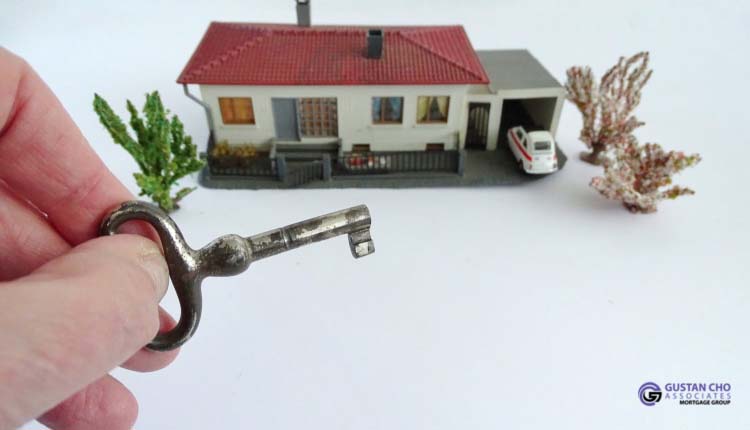The Impact of the Coronavirus Outbreak on Non-QM Lenders
The Coronavirus outbreak hit non-QM lenders hard and fast. In early 2020, it felt like everything came to a standstill—non-QM mortgage companies stopped lending, shut their doors, and had to let go of staff. This left borrowers who relied on these alternative mortgage options in a tough spot, questioning if non-QM loans were gone for good.
Fast forward to 2025, and it’s clear that COVID-19 really changed the landscape for non-QM lending. The industry took a hit at first, but it bounced back and is now in a better place, offering more flexible options for self-employed individuals, real estate investors, and those facing credit challenges.
In this article, we’ll examine the pandemic’s impact on non-QM lenders, the lessons learned along the way, and what borrowers can expect from non-QM loans today.
What Are Non-QM Loans and Why Do They Matter?
Before exploring the effects of the Coronavirus outbreak on non-QM lenders, it’s essential to understand what non-QM loans are. Non-QM, or non-qualified mortgage loans, serve as alternative mortgage options for borrowers who do not meet the criteria established by traditional lending entities like Fannie Mae, Freddie Mac, FHA, VA, or USDA. These loans are designed for all sorts of borrowers who might have a hard time getting regular financing.
Some key groups that benefit from non-QM loans include self-employed individuals who rely on bank statements rather than tax returns, homebuyers with recent financial difficulties such as bankruptcies or foreclosures, and real estate investors seeking debt service coverage ratio (DSCR) loans.
Additionally, this type of loan is suitable for borrowers with unique income sources, including rental income, commissions, or foreign earnings, allowing them to access the financing they need.
For many families, non-QM loans are the only way to achieve homeownership. That’s why the impact of the Coronavirus outbreak on non-QM lenders was so severe—it cut off access to financing for millions of creditworthy borrowers.
Non-QM Loans Are Back and Stronger
Even after COVID-19 disruptions, Non-QM lenders are offering more programs than ever.
The Sudden Collapse of Non-QM Lending in Early 2020
When COVID-19 hit in March 2020, the mortgage industry went into chaos. Traditional lenders kept operating, but the impact of the Coronavirus outbreak on non-QM lenders was immediate:
- Almost every major non-QM lender stopped taking new applications.
- Programs like bank statement loans and asset-depletion loans vanished overnight.
- Liquidity dried up because investors on Wall Street, who buy non-QM loans, pulled out of the market.
Major players like Angel Oak Mortgage Solutions, Deephaven Mortgage, and Citadel Servicing either suspended operations or laid off most of their staff. Borrowers in the middle of the loan process were left in limbo, unable to close on their homes.
At that moment, many in the industry feared that non-QM loans would go the way of subprime loans after the 2008 housing crash.
Liquidity Crisis: The Biggest Challenge for Non-QM Lenders
The main reason the impact of the Coronavirus outbreak on non-QM lenders was so severe comes down to liquidity. Unlike government-backed loans, non-QM mortgages depend heavily on private investors and securitizations.
When the financial markets collapsed in early 2020, investors weren’t willing to take risks on non-traditional mortgages. Without investors, non-QM lenders had no funds to close loans. This liquidity freeze forced even the strongest companies to pause lending.
Borrowers who were self-employed or recovering from bankruptcy were suddenly shut out of the mortgage market. Many had to delay buying or refinancing until programs returned.
Borrower Hardship During the Pandemic
The coronavirus outbreak didn’t just affect companies; it really had a direct impact on borrowers, too, especially non-QM lenders.
- Self-employed borrowers could no longer use bank statement loans to qualify.
- Investors who relied on DSCR loans to grow their portfolios were blocked.
- Homebuyers after bankruptcy or foreclosure had to wait, since non-QM loans were their only path.
At the same time, government-backed programs like FHA and VA offered low rates and forbearance options. Many borrowers shifted toward those programs, but not everyone could qualify.
The result: thousands of potential homeowners had to put their dreams on hold.
The Slow Recovery of Non-QM Lending
By late 2020, the market began to reopen. Some lenders cautiously returned with limited programs. By 2021, the recovery gained speed as investors regained confidence.
The impact of the Coronavirus outbreak on non-QM lenders forced companies to rethink their risk models:
- Stricter income documentation in the early stages.
- Higher down payment requirements for certain loans.
- Adjustments in pricing to cover potential risk.
But as the U.S. economy rebounded, demand for non-QM loans skyrocketed. Self-employed borrowers and real estate investors were eager to return, and non-QM lenders adapted quickly.
COVID Changed Mortgage Lending—Here’s What It Means
Understand how the pandemic reshaped Non-QM mortgage approvals.
New Non-QM Loan Programs Post-COVID
One positive outcome of the impact of the Coronavirus outbreak on non-QM lenders is innovation. By 2022 and 2023, lenders had not only returned but also expanded their product lines.
Popular non-QM programs today include:
Bank Statement Loans
Bank statement loans are great for self-employed folks who don’t have the usual income paperwork. The loans allow self-employed individuals to demonstrate their income using 12 or 24 months of bank statements, making it easier to secure financing.
P&L Only Loans
P&L only loans let borrowers use a profit-and-loss statement from their CPA to qualify, instead of relying on standard income checks. This is helpful for small business owners and self-employed folks who might have uneven income or different ways of getting paid.
DSCR Loans
Debt Service Coverage Ratio (DSCR) loans cater to real estate investors by determining qualification based on the property’s rental income. This program considers the income generated by the investment property, allowing investors to secure financing without a traditional income score.
One Day Out of Bankruptcy or Foreclosure Loans
These loans allow buyers who have recently experienced bankruptcy or foreclosure to quickly re-enter the housing market. With just one day out of such financial difficulties, borrowers can qualify for a mortgage, helping them rebuild their financial stability more rapidly.
Asset-Depletion Loans
Asset-depletion loans let people use their savings or retirement funds to qualify for a mortgage. This option works well for those who might not have a steady income but have a lot of financial assets. It helps them get a home loan based on their overall wealth instead of just their income.
These programs are now stronger and more competitive than ever, proving that non-QM lending didn’t disappear—it evolved.
Long-Term Lessons from the Pandemic
Looking back, the impact of the Coronavirus outbreak on non-QM lenders taught us valuable lessons:
- Diversification matters – Lenders need multiple funding sources to survive crises.
- Borrowers need options – Millions of families are left behind without non-QM loans.
- The market is resilient – Even after a near-total shutdown, non-QM lending came back stronger.
For borrowers, the lesson is clear: even in uncertain times, alternative financing will always find a way to exist.
The Current State of Non-QM Lending in 2025
Today, in 2025, the non-QM market is thriving. After the impact of the Coronavirus outbreak on non-QM lenders, the industry rebuilt itself into a multi-billion-dollar sector.
- More lenders now offer non-QM loans nationwide.
- Rates are competitive compared to conventional loans.
- Guidelines are more borrower-friendly than they were in 2020.
- Demand from self-employed borrowers and investors is at an all-time high.
Far from disappearing, non-QM loans have become a permanent and essential part of the U.S. mortgage market.
Still Can’t Qualify With Traditional Loans?
Non-QM programs survived the pandemic and are designed for unique borrowers.
Final Thoughts
The impact of the Coronavirus outbreak on non-QM lenders was one of the most dramatic moments in modern mortgage history. What started as a total collapse became a story of resilience and growth.
For borrowers, the message is clear: non-QM loans are here to stay. If you’re self-employed, recovering from credit challenges, or an investor looking for flexible financing, non-QM programs in 2025 offer more options than ever.
Borrowers who need a five-star national mortgage company licensed in 50 states with no overlays and who are experts on non-QM loans, please contact us at 800-900-8569, text us for a faster response, or email us at alex@gustancho.com. The team at Gustan Cho Associates is available 7 days a week, on evenings, weekends, and holidays.
Frequently Asked Questions About the Impact of the Coronavirus Outbreak on Non-QM Loans:
Q: What Does the Impact of the Coronavirus Outbreak on Non-QM Lenders Mean for Homebuyers?
A: Many borrowers could not get non-QM loans in 2020 because lenders stopped lending during the pandemic.
Q: Did the Impact of the Coronavirus Outbreak on Non-QM Lenders Make Loans Harder to Get?
A: Yes. Lenders tightened rules, paused programs, and made it tougher for self-employed or credit-challenged borrowers to qualify.
Q: Why was the Impact of the Coronavirus Outbreak on Non-QM Lenders so Big?
A: Non-QM loans rely on private investors, and those investors pulled back when the market crashed in 2020.
Q: How did the Impact of the Coronavirus Outbreak on Non-QM Lenders Affect Self-Employed Borrowers?
A: Self-employed borrowers lost access to bank statement loans for months and had to wait until lenders reopened programs.
Q: Did the Impact of the Coronavirus Outbreak on Non-QM Lenders Cause Companies to Shut Down?
A: Yes. Some lenders closed completely, while others laid off workers or paused lending until the market recovered.
Q: How Long did the Impact of the Coronavirus Outbreak on Non-QM Lenders Last?
A: The worst effects lasted through most of 2020. By 2021, lenders started reopening, and by 2023, the market was growing again.
Q: Did the Impact of the Coronavirus Outbreak on Non-QM Lenders Make Rates Higher?
A: At first, yes. Non-QM rates went up during the crisis. But in 2025, rates are competitive again.
Q: What New Programs Came After the Impact of the Coronavirus Outbreak on Non-QM Lenders?
A: New options like DSCR loans, one-day-out-of-bankruptcy loans, and P&L only loans came back stronger after the pandemic.
Q: Is the Impact of the Coronavirus Outbreak on Non-QM Lenders Still Felt Today?
A: Not as much. The market is stable now in 2025, but the pandemic showed how quickly non-QM loans can be disrupted.
Q: What Can Borrowers Learn From the Impact of the Coronavirus Outbreak on Non-QM Lenders?
A: Non-QM loans are important, but they can change fast in a crisis. Borrowers should stay flexible and work with lenders who offer many loan options.
This article about “The Impact of the Coronavirus Outbreak on Non-QM Lenders” was updated on August 22nd, 2025.
Turn Pandemic Challenges Into Mortgage Opportunities
Self-employed, high DTI, or unique income? We have flexible Non-QM options.










